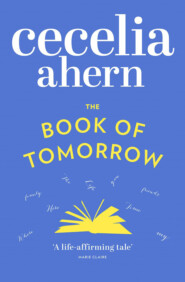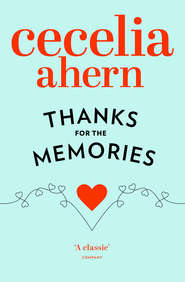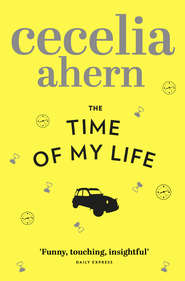По всем вопросам обращайтесь на: info@litportal.ru
(©) 2003-2025.
✖
One Hundred Names
Автор
Год написания книги
2019
Настройки чтения
Размер шрифта
Высота строк
Поля
Kitty was disappointed to learn her tea was in fact tea; she could do with something stronger. ‘Constance would have been in touch with you over six months ago, a year or more ago, in fact, when you were living in Beaumont.’ On her surprised reaction to the knowledge of her previous home, Kitty explained, ‘I called to your house earlier today. Agnes told me you were here.’
‘Ah, so that’s the link with Agnes,’ she smiled. ‘Agnes Dowling. The nosiest old bat I’ve ever known, and the most loyal woman I’ve ever met too. How is she?’
‘She misses you. She doesn’t seem to be too happy with the new neighbours.’
Birdie chuckled. ‘Agnes and I made a good team. We lived beside each other for forty years. We helped each other out a lot over the years.’
‘She wants to visit you but she’s not too mobile at the moment.’
‘Ah, yes,’ Birdie said softly.
It struck Kitty how, on coming to live in a home, it seemed almost as if each habitant had to say goodbye to life outside the walls. They would receive visitors and have day trips, perhaps weekends or holidays, but the life that they once knew, the people who once surrounded them, were no longer a part of them. She thought of Sarah McGowan, qualified accountant, now farming watermelons on the other side of the world.
Story theory – saying goodbye to old lives, hello to new lives. Castaways?
Birdie looked at Kitty’s note nervously. Kitty was used to that: people were often afraid of speaking to journalists, afraid of saying something wrong.
‘My editor, and friend, Constance, passed away a few weeks ago,’ Kitty started to explain. ‘She was going to do a story, one which she left in my hands but which she never had the opportunity to fully explain to me. Your name was on the list of people she wanted to write about.’
‘My name?’ Birdie seemed surprised. ‘But why would I be of interest to her?’
‘You tell me,’ Kitty urged. ‘Is there something that happened in your life that you think she would have been particularly interested in? Something she would have been aware of? Something you talked about publicly that she could have seen or heard from somebody else? Or perhaps your paths crossed along the way somewhere. She was fifty-four years old, French accent, tough as nails.’ Kitty smiled to herself.
‘My goodness, where would I even start?’ Birdie began. ‘I have never done anything particularly special in my life that I can think of. I never saved a life, won any awards …’ she trailed off. ‘I can’t see why I would be of interest to her.’
‘Would you be willing to let me write the story about you?’ Kitty asked. ‘Would you allow me to ask you questions and perhaps find the thing that Constance thought was so special?’
Birdie’s cheeks pinked. ‘Goodness, I was getting ready for a chess game with Walter, I didn’t think a magazine would be suddenly doing a story on me.’ She laughed lightly and sounded like a little girl. ‘But I would be more than happy to try to help you with your story. I don’t know how much help I will be, though.’
‘Great,’ Kitty said, not feeling as happy as she should be. She had finally found somebody from the list but that person had no idea of the story. It was getting curiouser and curiouser.
Birdie sensed her hesitancy. ‘How many are on the list?’
‘There are one hundred names in total.’
‘My goodness,’ she whispered. ‘And do none of them know what the story is about?’
‘You’re the first I found.’
‘I hope you have more luck with the others.’
Me too, she thought, but didn’t say it out loud.
With a lot of encouragement from Kitty, Birdie talked about her life, starting from her childhood and going all the way up to her current life. Kitty kept it general, making a note of where she would like to question her further on her next visit. Birdie was shy at first, as most people were when talking about themselves, leaving out information, talking more about others than herself, but she seemed to warm up by the end, the wheels of her memory bank moving up a gear with each new question.
Birdie was eighty-four years old and had grown up in a small chapel town in County Cork, in the south-west of Ireland. Her father had been a school teacher, as strict at home as he was in the school, and her mother had died when Birdie was a child. She had three sisters and one brother and when she was eighteen she had moved to Dublin to live with a family to mind their children. That same year she met her husband, Niall. They married and immediately started having children. She had seven children, six boys and one girl, ranging in age now between sixty-five and forty-six. Her daughter was the youngest. At the age of thirty-eight Birdie had her last child. This seemed less to do with family planning than with her husband having to sleep on the couch. The seven children were raised first in Cabra and then in Beaumont, in the home Kitty had visited earlier that evening, with Agnes sounding more like the second parent who helped raise Birdie’s children, taking the place of the husband who was busy with his job in the Civil Service.
Though Birdie’s life was indeed interesting, nothing jumped out to Kitty as being particularly extraordinary about it. Birdie seemed embarrassed by it all at the end, apologising for not being more exciting, while Kitty reassured her over and over that her life was more than interesting, that she was an inspiring woman who lots of women could look up to and relate to.
On the way home Kitty glanced at her notes and felt guilty for feeling that Birdie’s beautiful rich family life was not enough.
From the bench in the now darkened garden lit by pathway lights and overhead lanterns, Birdie remained outside long after Kitty had left her, feeling aware of the lack of excitement in her life, feeling her simple answers had done nothing to inspire the lady who had spent an hour with her, though she had done her best to try to convince her her life was indeed interesting. Birdie had no doubt that it wasn’t interesting to any other person. It had at times been barely interesting to her but it was her life and she had liked it; had never been in it for more than she could handle. Birdie couldn’t help but retreat into her memory that evening and she stayed there for the entirety of the chess game, so that Walter had checkmate almost as soon as they started.
Birdie would be eighty-five years old the following week; of course she had stories, of course she had secrets, everybody did. It was a case of trying to decide which one she felt Kitty would like to hear and, after all this time, which one Birdie wished to tell.
Kitty ignored Pete’s call on her way home in another expensive taxi. She didn’t want to have to tell him she was nowhere with the story. She couldn’t bear the condescending tone in his voice, the judgement, the doubt that trickled through each of his words. She placed her phone on silent and as a result missed another call. When she picked up the voicemail it was a woman speaking so loudly the taxi driver gave Kitty a look, and she had to turn down the volume.
‘Hi, Kitty, it’s Gaby O’Connor, Eva Wu’s publicity agent. We received your call today. Sorry we missed you, we’ve just been so busy. Eva would be only too happy to give you an interview. We’re based in Galway but we’ll be in Dublin tomorrow. In fact, Eva’s doing an interview tomorrow in Arnotts on Henry Street if you’d like to come along and meet us there.’
Eva Wu. Number three of the one hundred names. She’d made contact with her second person, and this one had a publicity agent and was doing a television interview. Who on earth was she and how on earth had Kitty missed her?
When she arrived home after an exhausting day feeling a bit more upbeat about her story, she found dog turd smeared all over her front door.
Chapter Eight (#ulink_f6cd5baa-d19b-59e4-b1a1-4947c339652a)
‘I’m so sorry to drag you over so late,’ Kitty apologised to Steve as he got out of his car. She’d wiped her eyes roughly while she waited and now hoped it wasn’t obvious that she’d been crying. ‘I didn’t mean for you to come over at all, I just didn’t know who else to call. The dry-cleaners said they’d evict me next month if I didn’t sort it out and I didn’t want to call the guards and I didn’t know who else to call. Sorry,’ she repeated.
‘Kitty, shut up saying sorry, okay?’ he said gently, putting his arm around her shoulder and giving her as much of an embrace as his PDA-hating body would allow him, and though it was more the kind of hug a footballer would give another she appreciated that he even touched her. ‘What did they do this time?’
She didn’t need to answer, the smell hit as soon as they stepped in the stairwell.
‘Oh God …’ He pulled the neck of his sweater up over his mouth and nose.
It took them twenty minutes of much gagging and retching to clean the door and it seemed it would take eternity to get rid of the stink. As a further apology and thanks, Kitty treated Steve to dinner in a nearby bistro.
‘I have to wash my hands again,’ Steve said, rolling up his nose in disgust, ‘I can still smell it on me. I don’t think I can touch food.’
‘You’ve cleaned your hands six times,’ she laughed, watching him disappear to the bistro toilet.
‘So how is everything with you? Is Victoria Beckham’s new line Fit or Shit?’ she asked as soon as he’d returned.
‘Ha ha,’ he said, without cracking a smile. ‘I wouldn’t know, seeing as I’m no longer a slave to her fashion.’
Steve wasn’t a slave to any particular fashion but his own style, which wasn’t especially bad but it was consistent, had pretty much been the same since their college days, though the fabrics were now more expensive and he tended to wash his clothes more regularly. He was thirty-four years old, with a mop of unruly black curly hair on top of his head, a style he’d had since college and which, like him, never seemed able to be tamed. His curls often hung in front of his blue eyes so that he was constantly jerking his head to move his fringe away, having long ago given up on brushing it away with his fingers. He was always unshaven, his stubble a designer length, but Kitty had never seen him freshly shaven or reach beard stage. He lived in leather jackets and jeans and would have appeared more at home reviewing the alternative music scene than as a sports journalist, or at least a frustrated sports journalist. Even when going to matches he never wore a jersey, his love for the game not having to be proved by his T-shirt. He was the eternal student, never seeming to have any money and sharing houses and flats with unusual characters, chopping and changing accommodation according to their recent behaviour. He was currently living in the suburbs in a nice semi-detached three-bedroom house with a married couple who needed help from a third party to meet the mortgage payments of their negative equity. Living in non-violation of the married couple’s strict household code for the past six months, Steve found his lifestyle now mirrored theirs, and it was almost like he’d grown up a little.
‘Actually,’ he shifted in his chair, a movement that told Kitty he was preparing to say something he deemed interesting, ‘I no longer work for the paper.’
‘What?’
‘I no longer work for the paper,’ he said in exactly the same tone.
‘Yes, I heard you but … they fired you?’
‘No,’ he said, insulted. ‘I left.’
‘Why?’
‘Why? I thought that would be obvious. Because a million reasons, but mainly because you were right about what you said a few weeks ago—’











